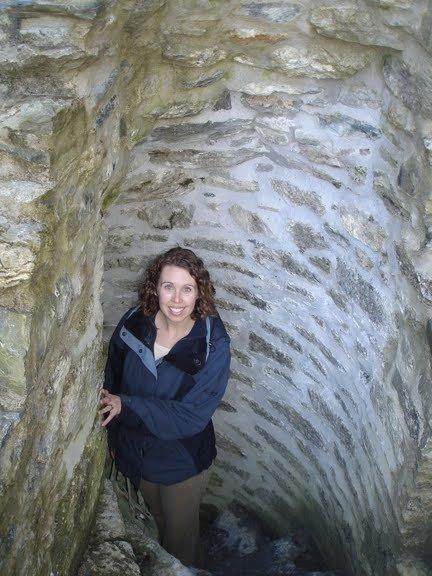Meet EPA Scientist Beth Owens, Ph.D.
 EPA scientist Beth OwensAs co-director of one of EPA’s Superfund Technical Support Centers that is focused on human health risk, Beth Owens provides technical support to Superfund sites. She also helps facilitate communication between various EPA labs, centers, and national programs.
EPA scientist Beth OwensAs co-director of one of EPA’s Superfund Technical Support Centers that is focused on human health risk, Beth Owens provides technical support to Superfund sites. She also helps facilitate communication between various EPA labs, centers, and national programs.
When did you first know you wanted to be a scientist?
Probably forever. Both of my parents are in the sciences, so I was always exposed to science and research and I was always tagging along to help with my dad’s research or experiments. I got engaged in research projects in school and thought I was going to go into chemistry because I like chemical exposure and how chemicals interfered with biology. When I went to college, I found toxicology and it seemed like the perfect fit.
Tell us about your scientific and educational background.
I got my bachelor’s in biochemistry from Bucknell University where I did research in the lab of a toxicologist and I decided that I wanted to go into toxicology. I went to the University of Kentucky and got my PhD in toxicology working with their Superfund Basic Research Program. During my time there I realized that I was more interested in the applications of research, like risk assessment. I did a postdoc at EPA down in Research Triangle Park, North Carolina, working on the Integrated Science Assessments that support the NAAQS and was lucky enough to be hired as a federal employee.
How does your science matter?
I serve as the director of the Superfund Health Risk Technical Support Center. EPA has five Superfund Technical Support Centers and the Health Risk center provides technical scientific support on human health and toxicity risk issues related to Superfund. I work with an amazing team that reviews and translates the science that supports the toxicity values and our group also updates and develops new toxicity values. These values are called PPRTV for Provisionally Peer Reviewed Toxicity Values.
What do you like most about your research?
I like the application part of my research—it makes me feel like I am making a tangible difference. I like it when I know that the assessments that we developed will help better a community and ensure that people are protected from the hazards of chemical exposure. I feel reenergized when our chemical assessments and our work is used in superfund cleanups, or is used to make better decisions for cleaning up communities.
If you could have dinner with any scientist, past or present, who would it be? What would you ask him or her?
I would want to meet with Rachel Carson—she was a woman in science and one of the founders of the environmental movement that led to the creation of EPA. She would be interesting to talk to because she was able to motivate people into action. That is a unique skill for a scientist, but it is so important to make your ideas tangible and relatable so that people want to act against some of the environmental problems in their communities. Getting her perspective on that would be great.
If you weren’t a scientist, what would you be doing?
I’ve always been interested in science, so it would have to be related to science. Maybe teaching science, because building the next generation of scientific minds would be rewarding.
If you could have one superpower, what would it be and why?
Cloning, or being in multiple places at once, or stopping time—the goal would be to be able to do more with less time.
Any advice for students considering a career in science?
I think keeping an open mind and not being afraid to say yes when an opportunity presents itself. Your path is going to change. Just be open to it; run with it. You don’t know where you will end up; it might be something that fits you even better.
Describe any steps you take in your daily life to protect the environment.
I have three kids and we try to keep them aware that our impact on the environment is important every day. We recently bought an electric minivan to haul around our family. We always take our own bags to the store. We compost. We don’t eat a lot of meat, so we’ve reduced our footprint in that way.
Editor's Note: The opinions expressed herein are those of the researcher alone. EPA does not endorse the opinions or positions expressed.
